Dagestan. Part ISeptember 28–30, 2007 A mouldering black caviar sandwich in a café cabinet of the “Vnukovo” airport departures lounge was a sorry sight, the reason being that it was priced at 38 US dollars. 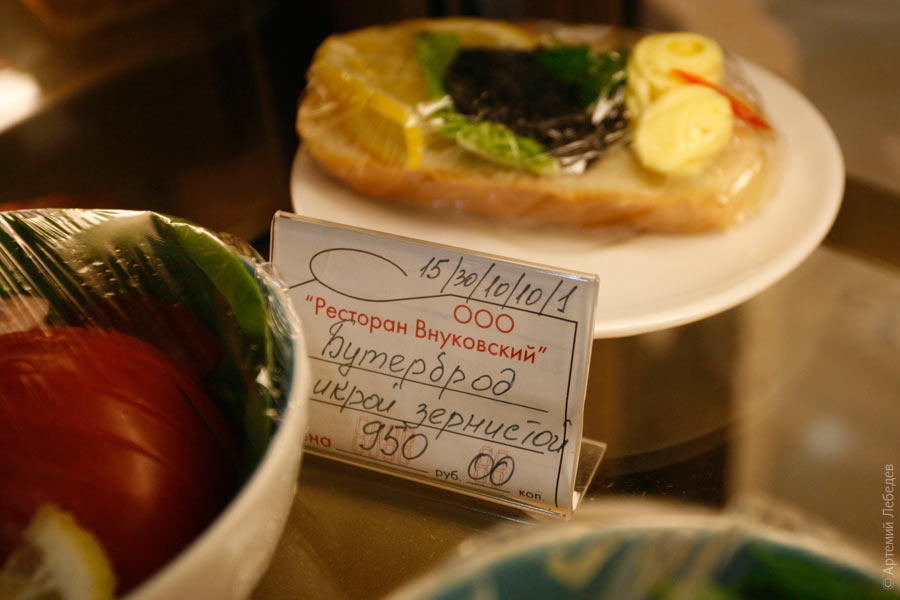 MakhachkalaMapOn a balmy Caucasus evening we landed in Makhachkala’s hospitable airport, where friendly dogs scamper around on the runway. 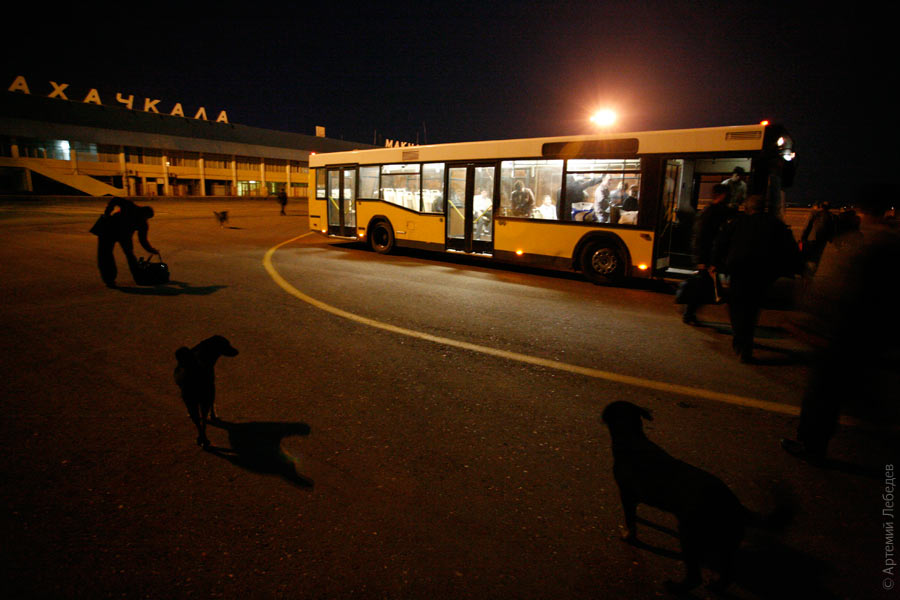 Only selected lampposts in the city are lit up in the evenings, but you don’t notice this at first because of the rather bright light emanating from shops, houses and petrol stations. Almost all of the petrol stations here are knock-offs. Such as this one: 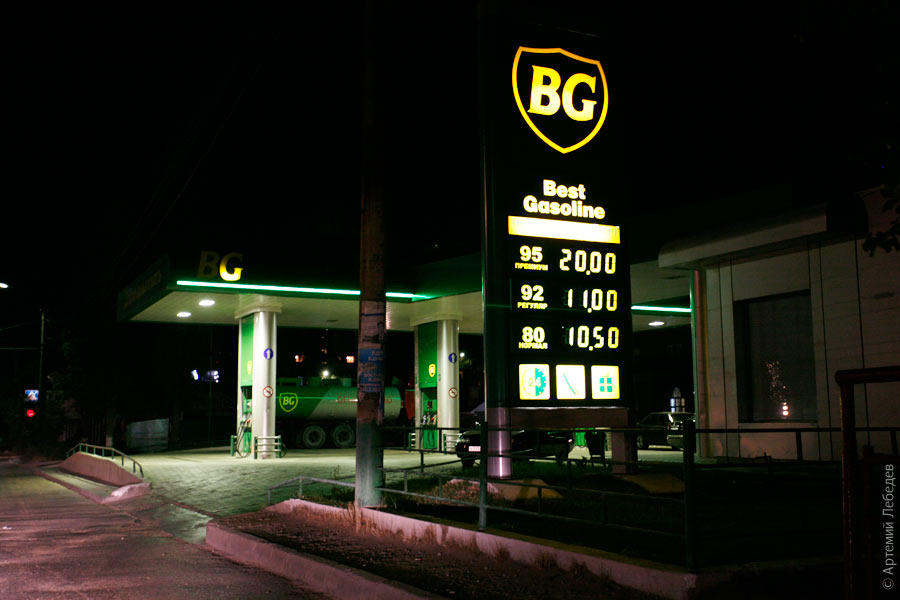 Or this one: 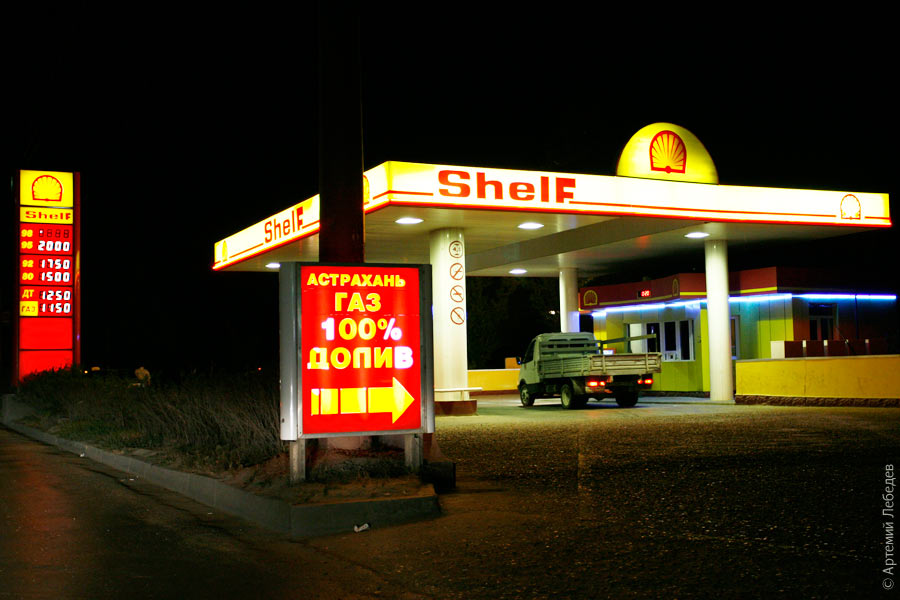 “Lukouil”, “Yukoil”, “YUKAS” — take your pick of the pseudo-brands. Half of the petrol stations sell natural gas — it’s a very common occurrence here. “Zhiguli” brand cars make up almost all of the city’s fleet. Although you do see some dope rides. Here’s tuning Caucasus-style: 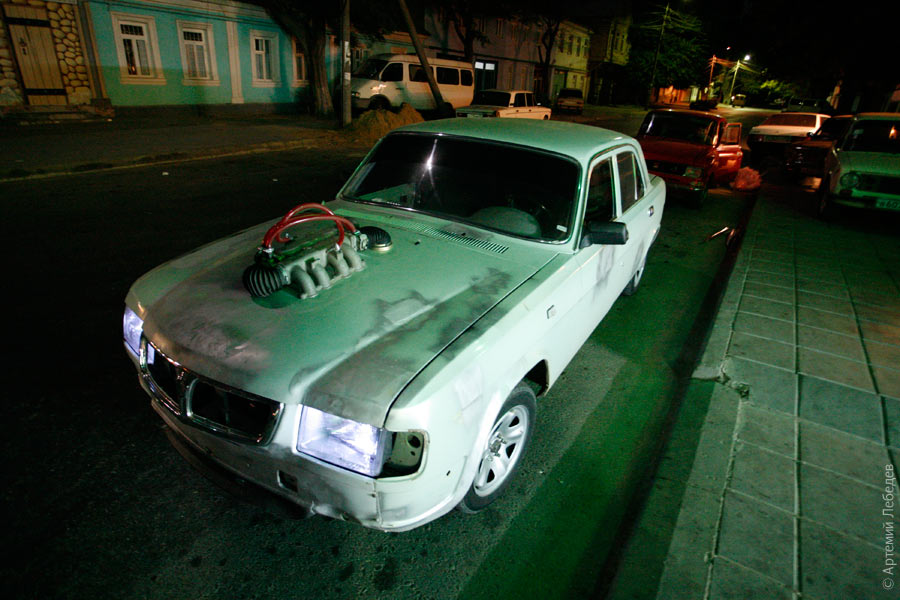 People stop at petrol stations to take a leak, to eat, to pray — this is all standard. There’s also a trend whereby instead of listing goods that aren’t available anyway, they write the word USSR on the display sign. There’s no natural gas here, however, there is a mosque: 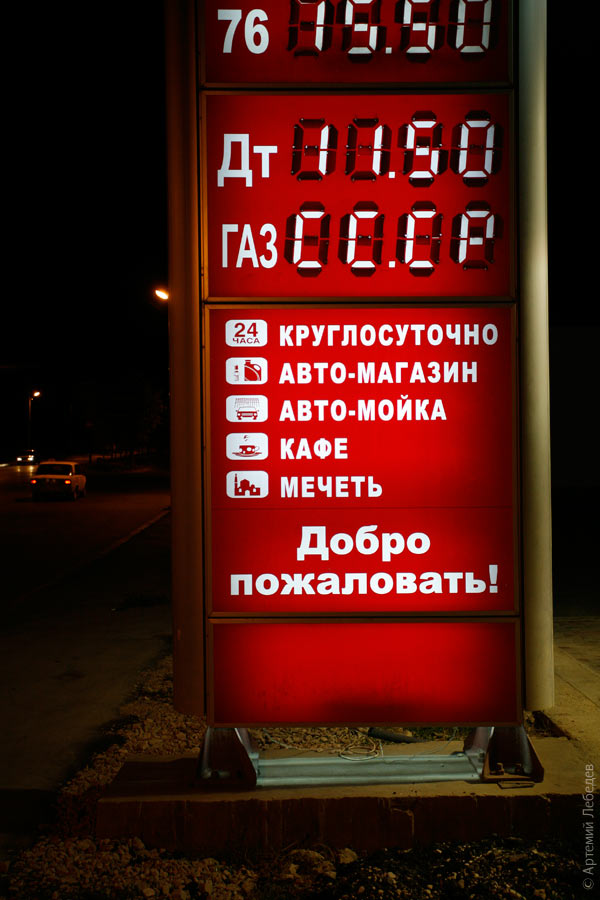 There is barely anywhere to get a bite to eat at night. 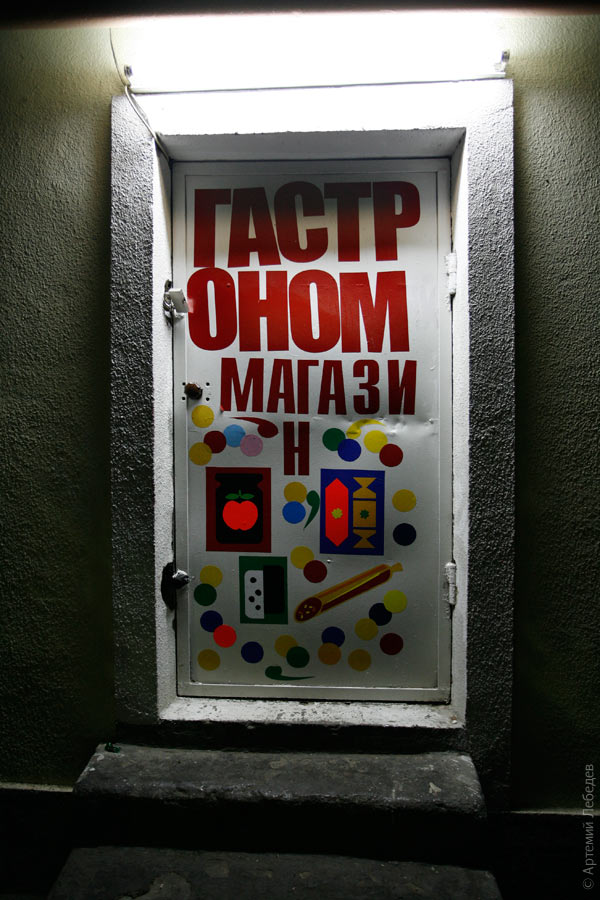 The nightlife here is the same as in Europe — everyone’s asleep. 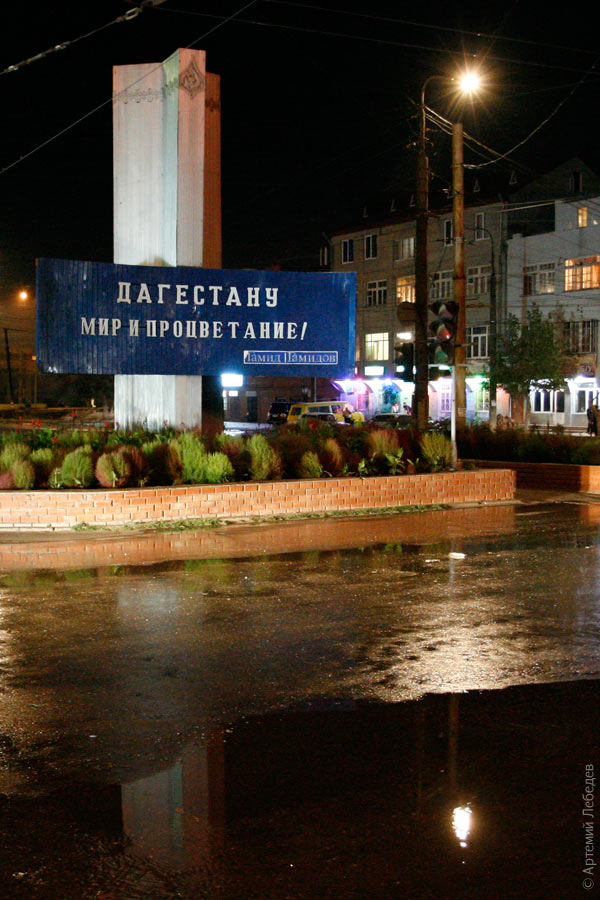 It’s morning, time to wash Lenin. 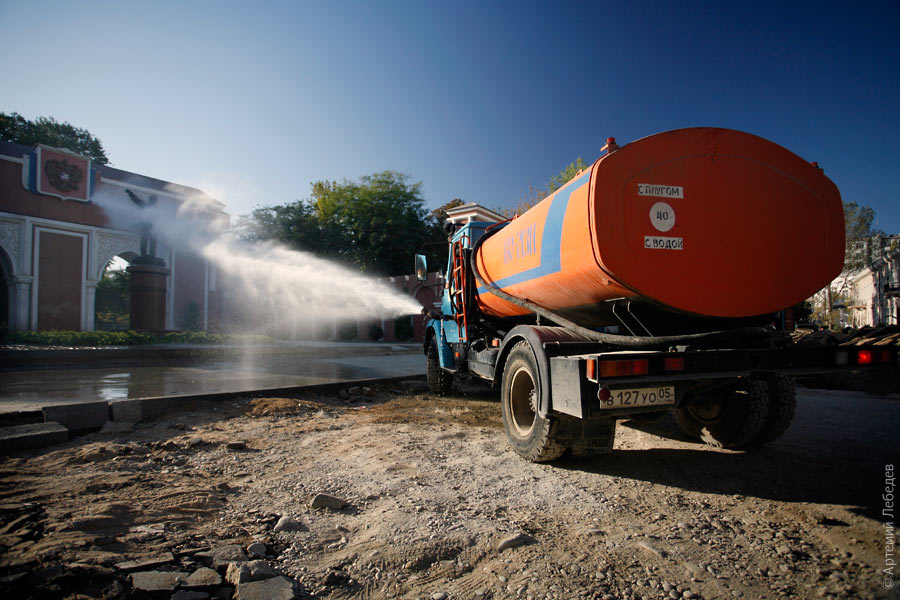
Peace and prosperity for Dagestan Soviet realities are everywhere. The “Keep your money in a savings account” sign still adorns this building, even if it has lost its neon tubes. The sumptuous base of this lamppost hasn’t been changed in about fifty years (just like in Kostroma and Volgograd). 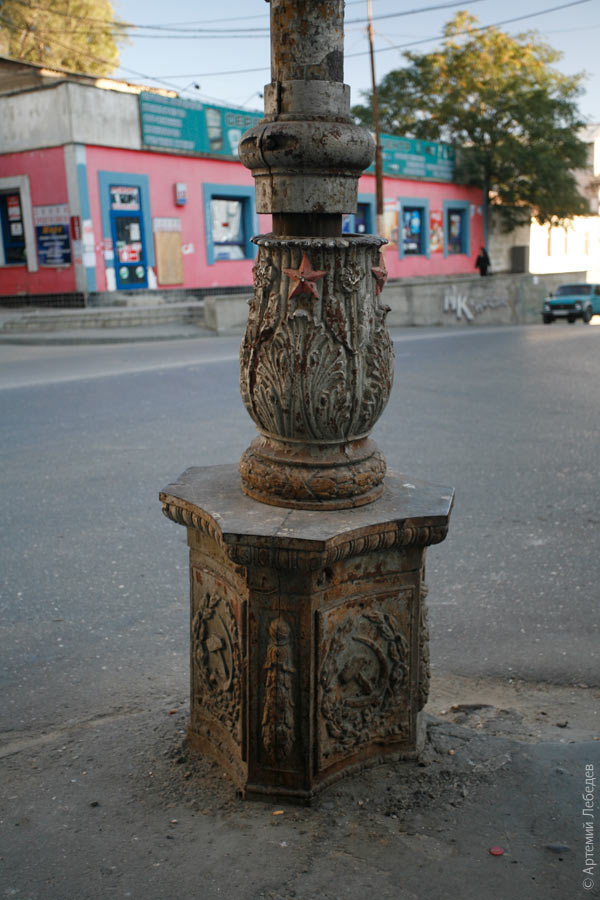 A large proportion of the share taxis are RAF-2203s or Rafiks. I was convinced that the last Rafik was laid up about a decade ago, which is why I made a point of photographing one in Mongolia. Whereas here they’re still driving them and it’s totally fine. 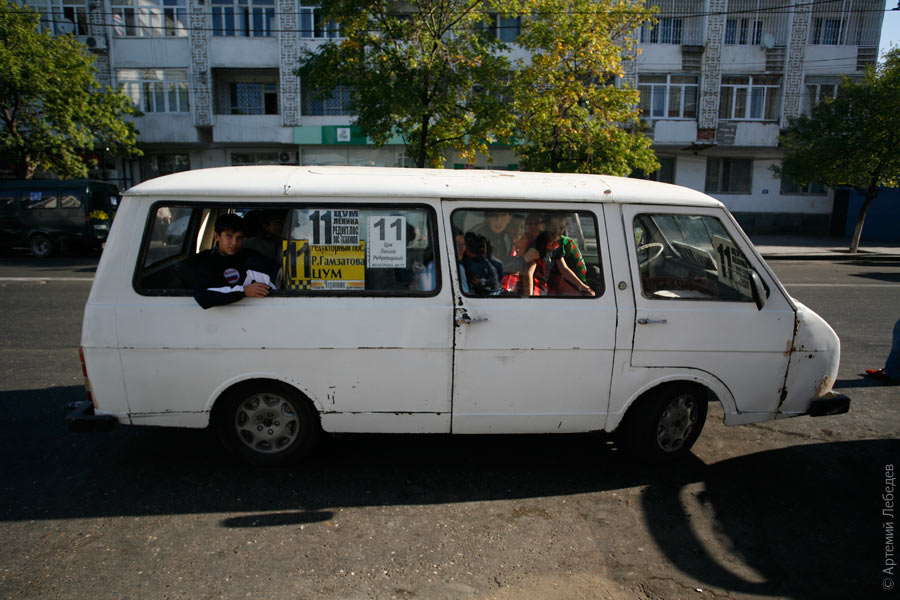 It’s calm in Dagestan. By that I mean that someone gets killed everyday, but it’s no scarier than mid-90s Moscow was. Last week yet another lot of purported terrorists took cover in a residential building. So all day long they shelled the building, fired at it from a tank, and generally ratcheted up the price of the special op they were conducting. There’s nothing left of the building itself; meanwhile, the neighbours are putting the finishing touches on their new roofs. 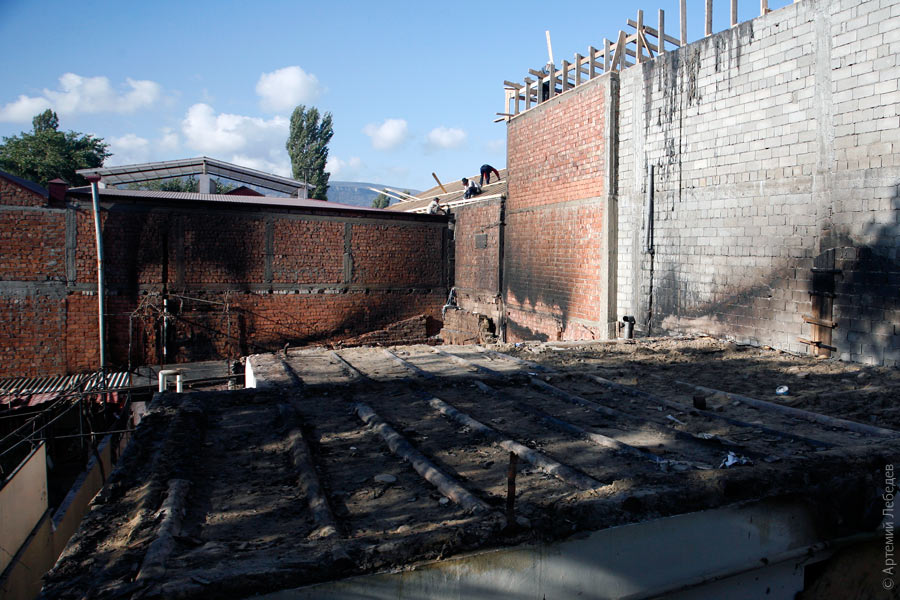 In the Caucasus they really don’t know the value of balconies, including inset ones. As soon as a family comes into a bit of money, the balcony, whether inset or not, is bricked up in order to add two metres to the square meterage of their apartment. 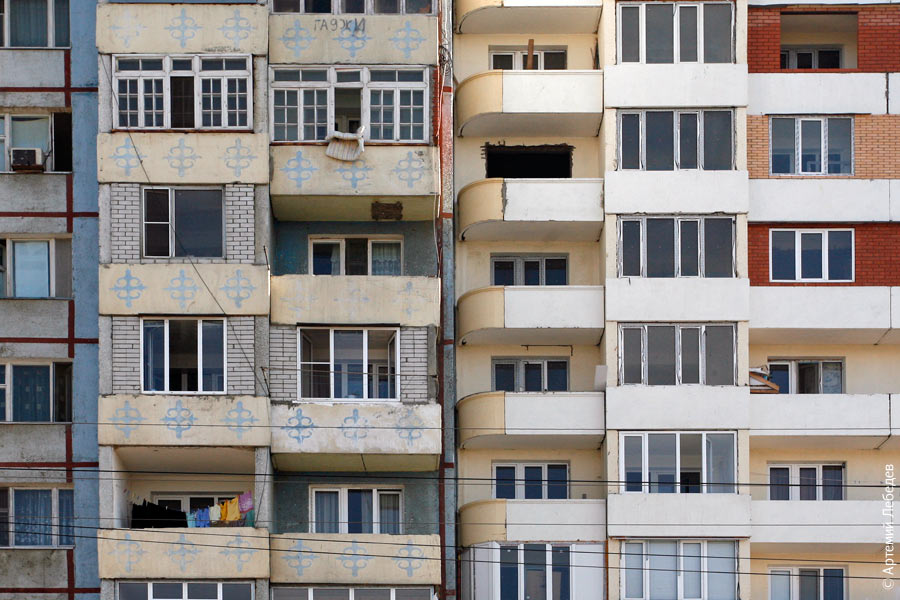 Typical Makhachkala rubbish bin: 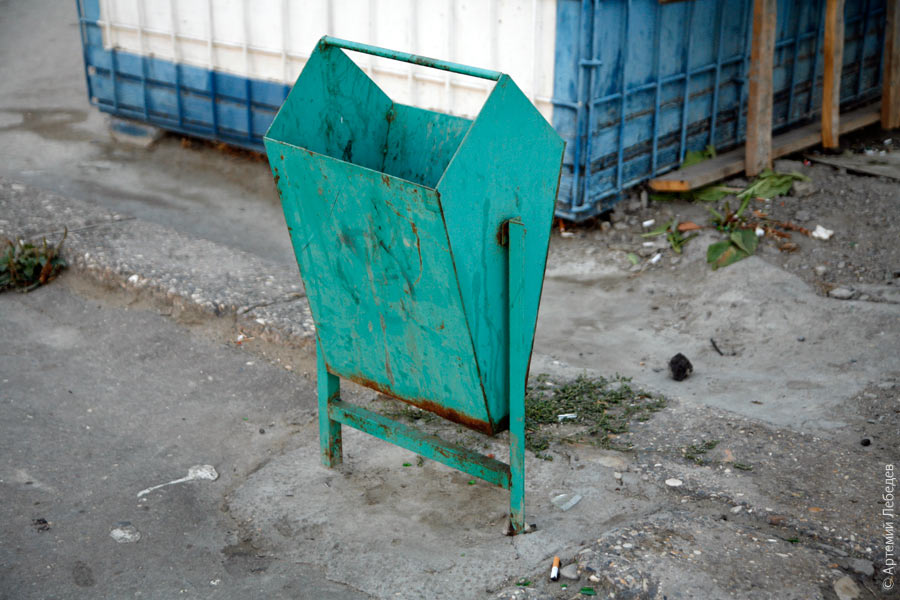 Last year they put up a monument to female Russian teachers here. Back in the day, young women used to come here to work as teachers. As a result they collectively came to be seen as a young version of the cartoon character Shapoklyak, complete with bowler hat and cane. Upon closer inspection it turns out that the bowler hat is actually a globe, whilst the cane is a sculptural necessity (it’s just a stick that helps hold up the cast iron globe). The top structure is devoid of meaning. 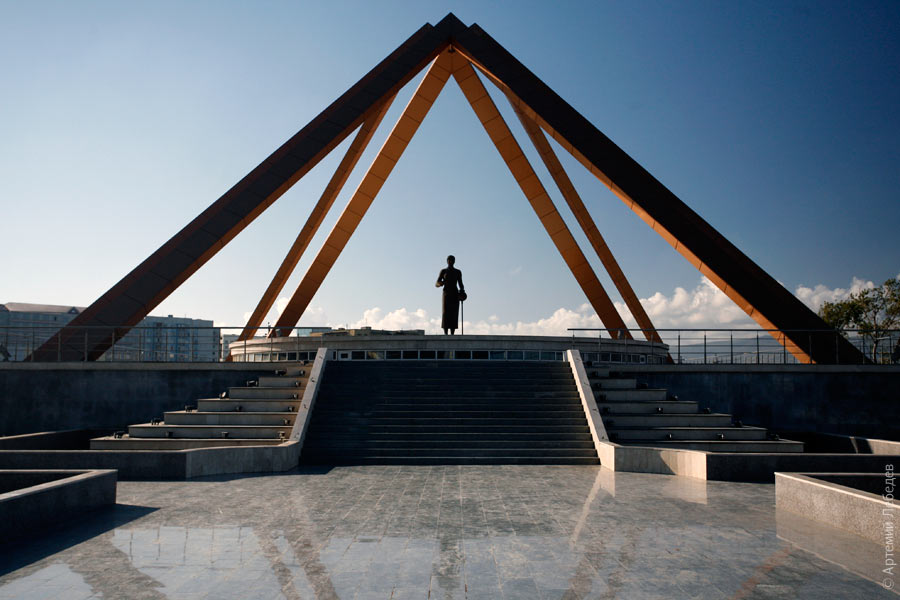 Mountains, roads, and villagesPeople here don’t think twice about asking “Are you from Russia?”, although Dagestan is Russia. Albeit only administratively speaking. Truth be told, it’s a completely different country. An Eastern country. 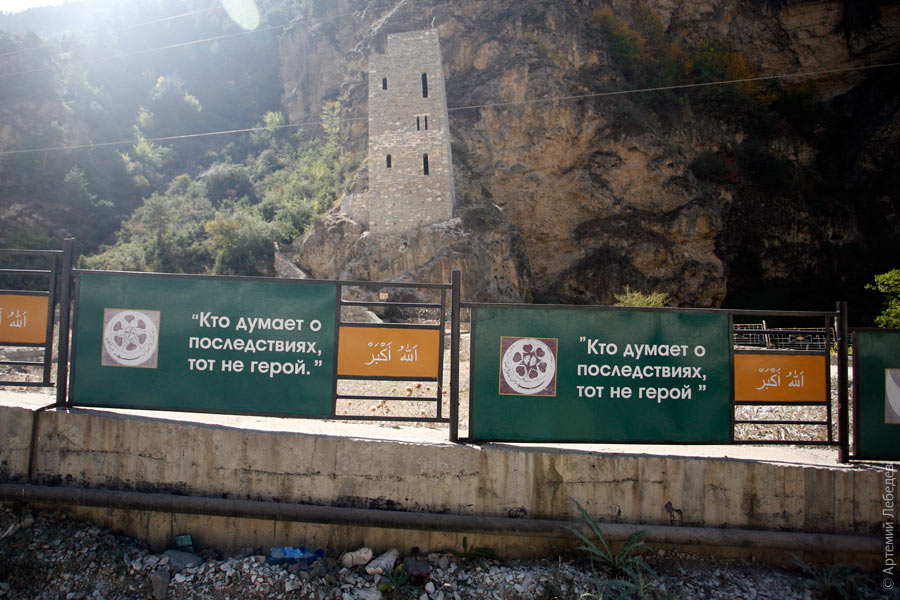 “If the consequences give you pause, then you’re not a hero.” After all, you couldn’t put up billboards saying “Allah akbar” on the roadside in Russia. 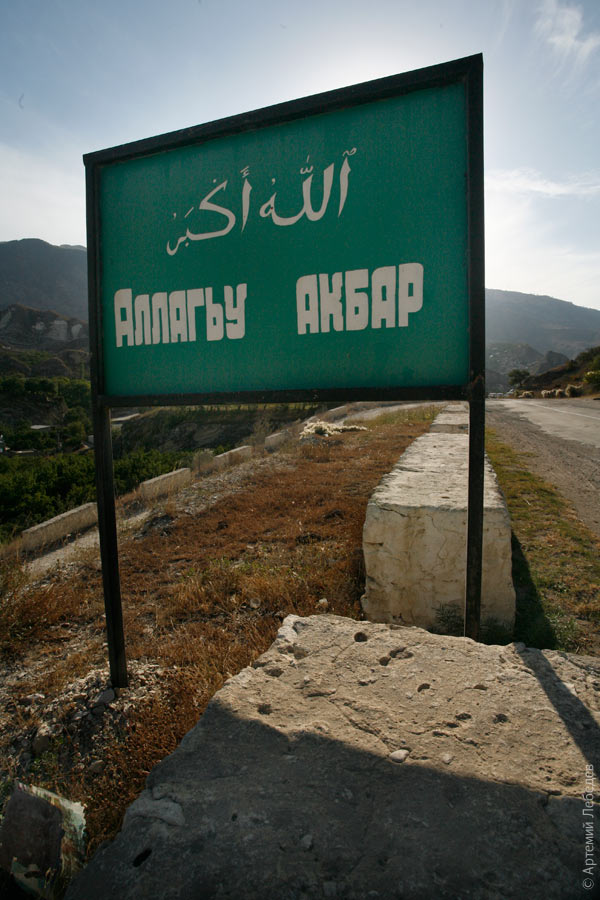 In Russia they don’t hang up Koran quotes above grocery stores. 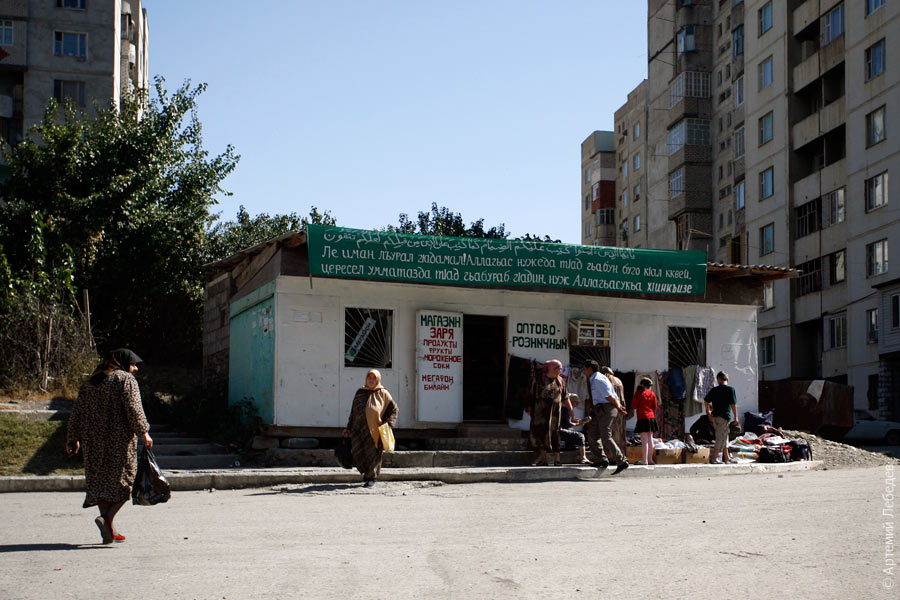 You won’t find a checkpoint in Russia with a portrait of the guerrilla commander Shamil on it. 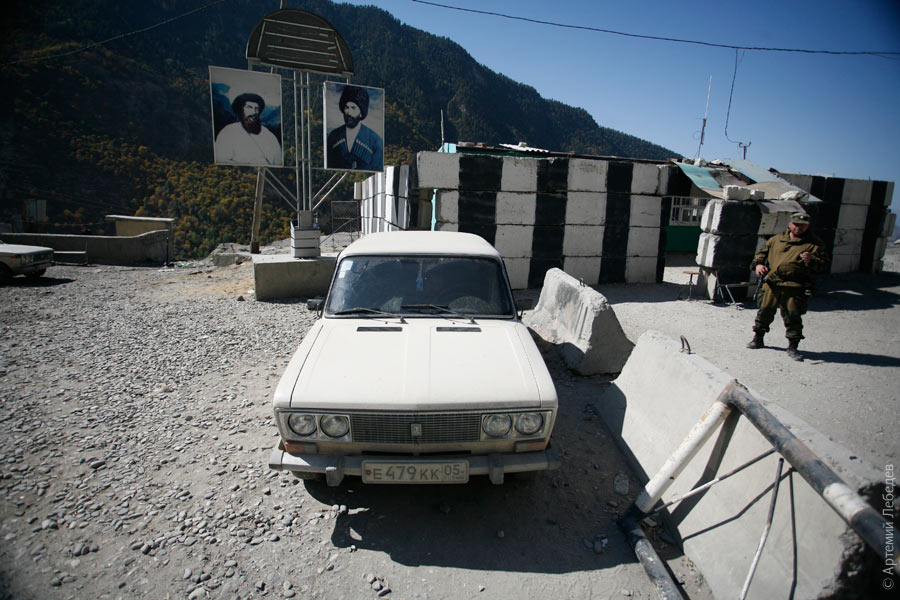 Lastly, in Russia a copper won’t be satisfied with a 50 rouble bribe. Here, no one ever gives over 100. They live by their own rules. 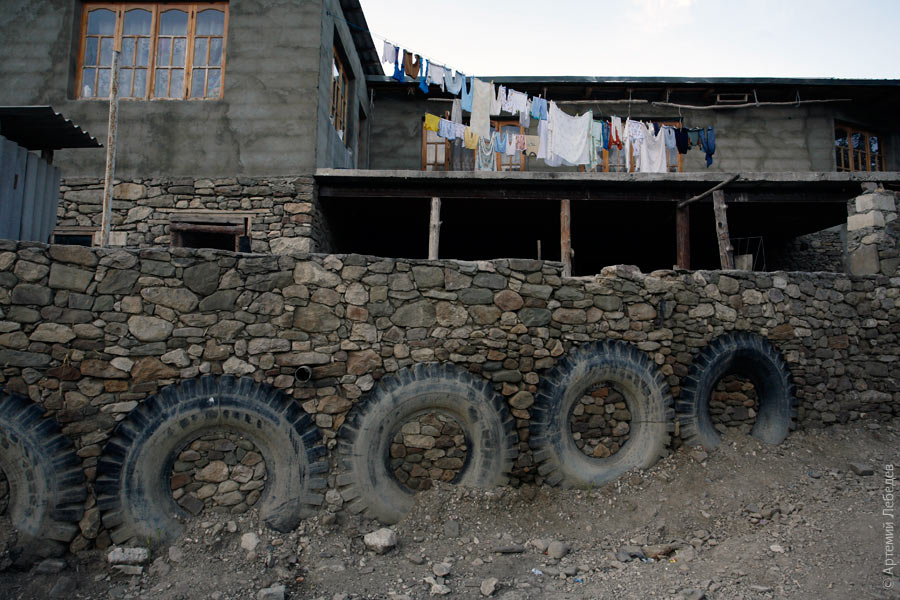 And also die by them. 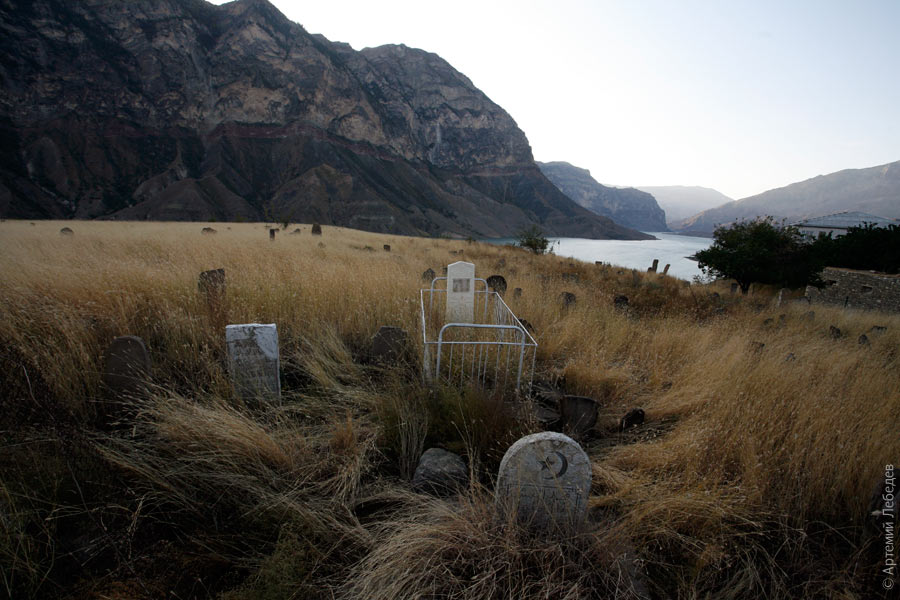 It’s just that for the time being Russians don’t need a visa to come here. 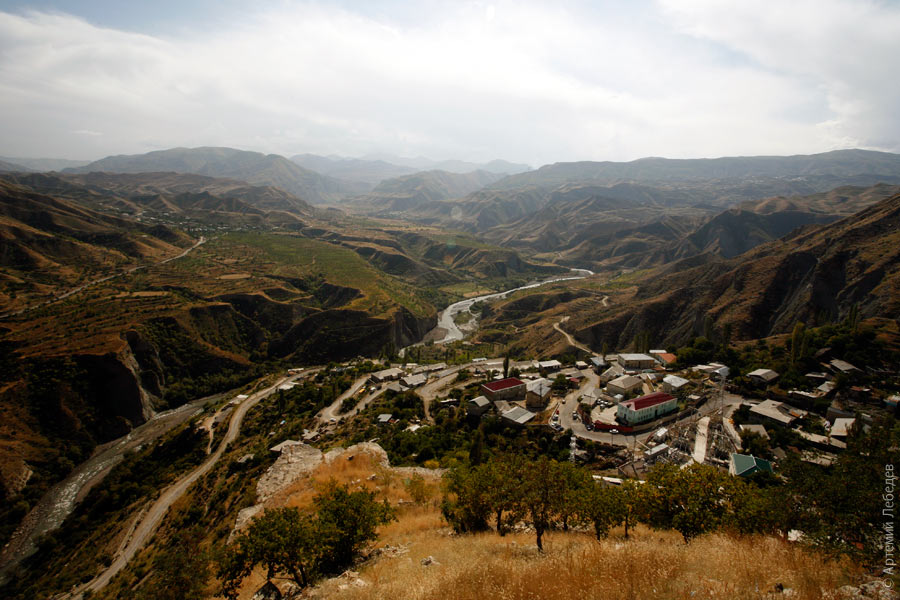 There are weapons in every house. Want to fire a few rounds? That can be easily arranged. 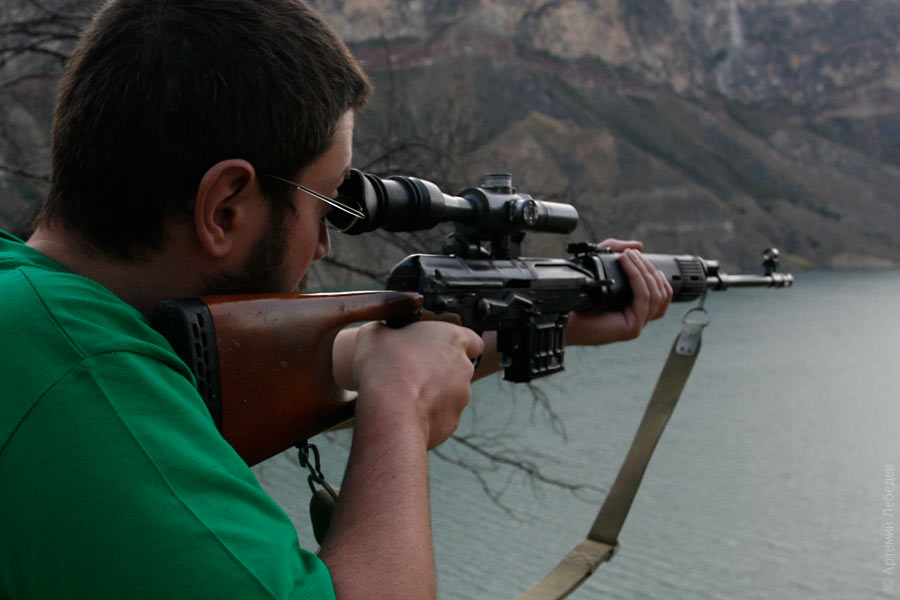 There’s enough nature to go round here. For instance, the state wants to build a couple of hydropower plants on some mountain rivers. Obviously, water levels will rise as a result and the rivers will turn into water reservoirs. 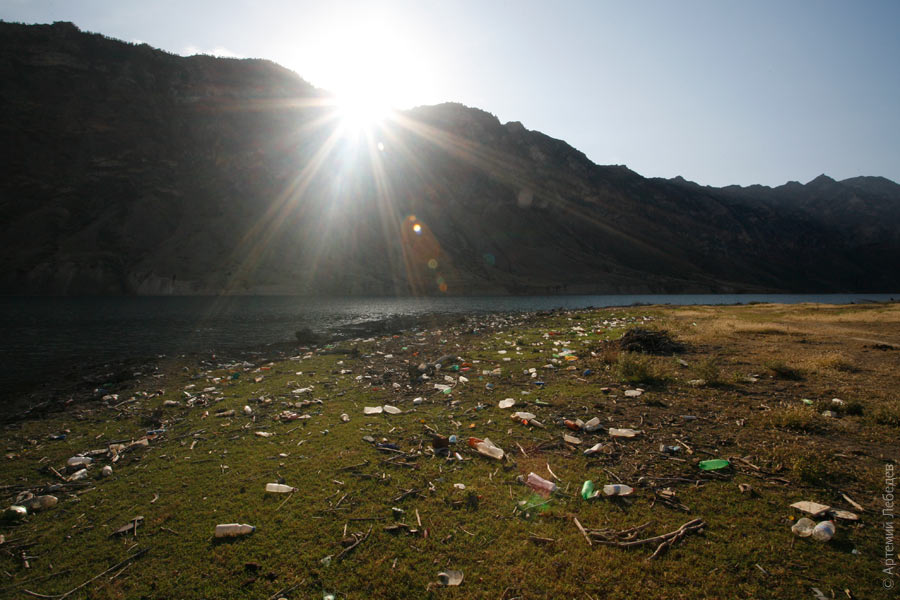 So what do all the locals do? They swiftly get title to the land in the flood area — some enter into sham marriages, others buy plots of land and backdate the purchases. Everyone is entitled to compensation — after all, we’ve got to build that HPP. 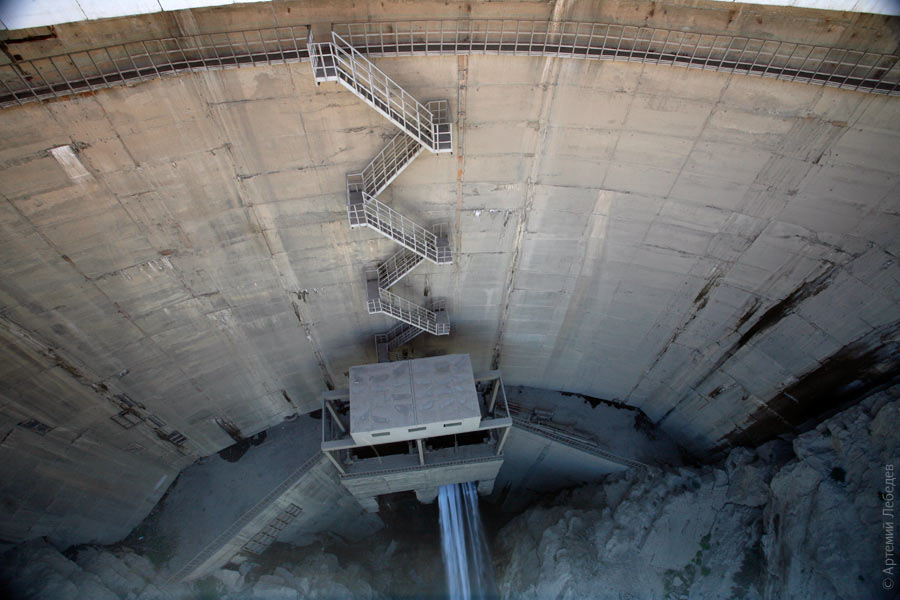 People in the Caucasus love to pull tricks. They’ll trick anyone and everyone, including each other. The level of corruption around here is unheard of in other parts of Russia. If it isn’t possible to simply swindle someone, then they trade. But everyone observes the unwritten rules of criminal conduct. 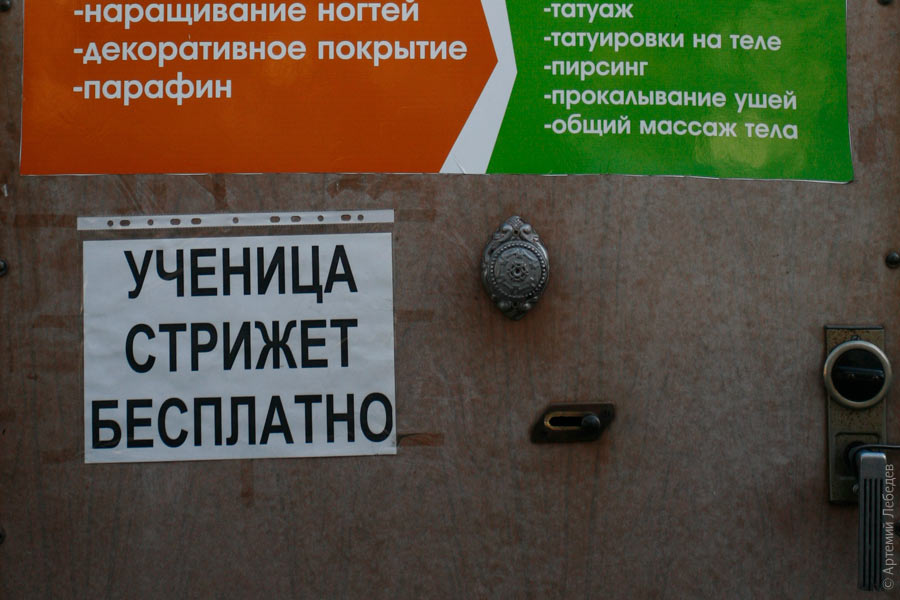
Trainee hairdresser Everything everywhere is up for sale. On every grocery stall there’s an ad written in chalk: “crushed stone for sale” or “dairy products in bulk”. This means that if not the seller himself, then his nephew managed to get his hands on some crushed stone or cut a deal with a factory and is happy using the shop door as advertising space. 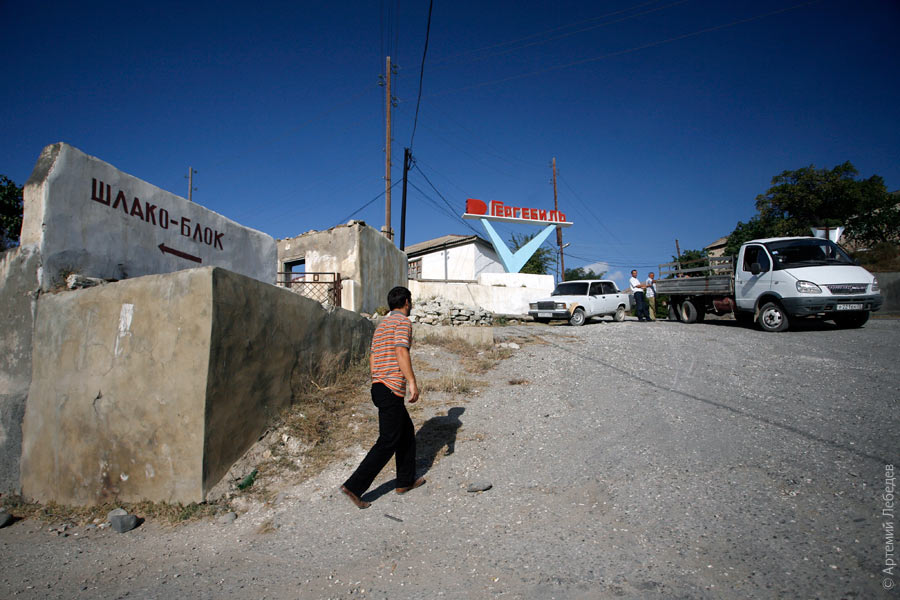 Shops are always densely covered with very detailed text. 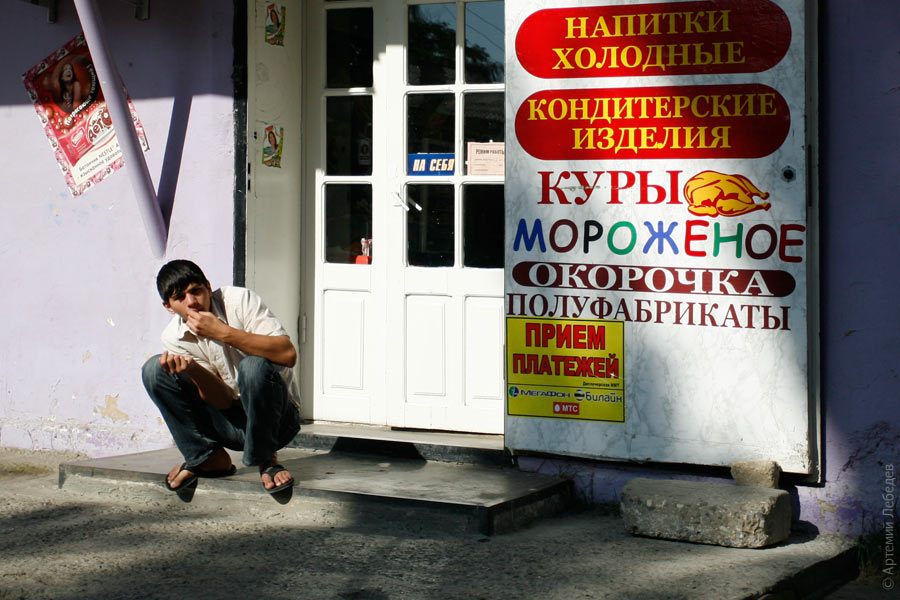 Having said that, they don’t have a modicum of respect for trademarks or corporate design in Dagestan. Here none of that matters in the slightest. 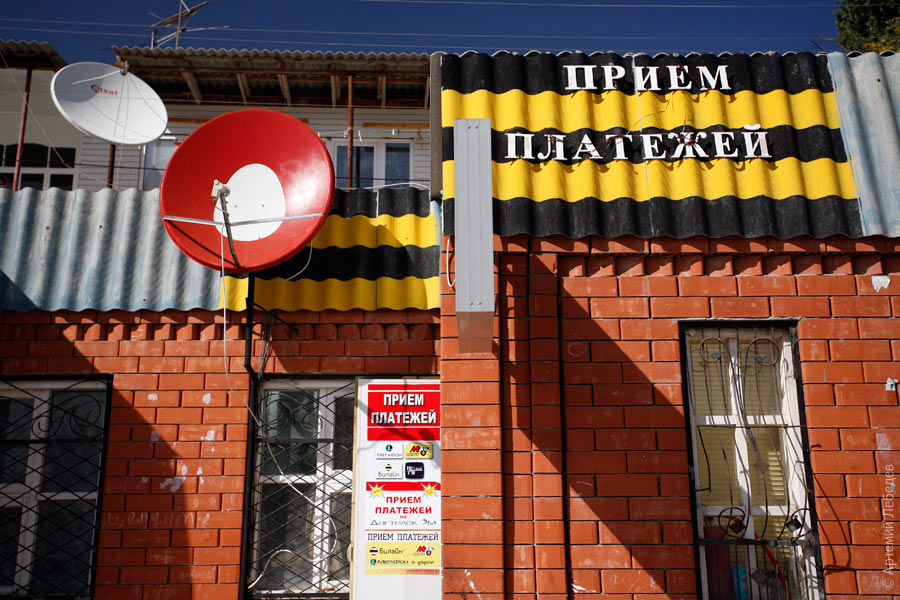 The road signs on out-of-town roads are always installed atop concrete pillars — no one steals them (cf. Madagascar). 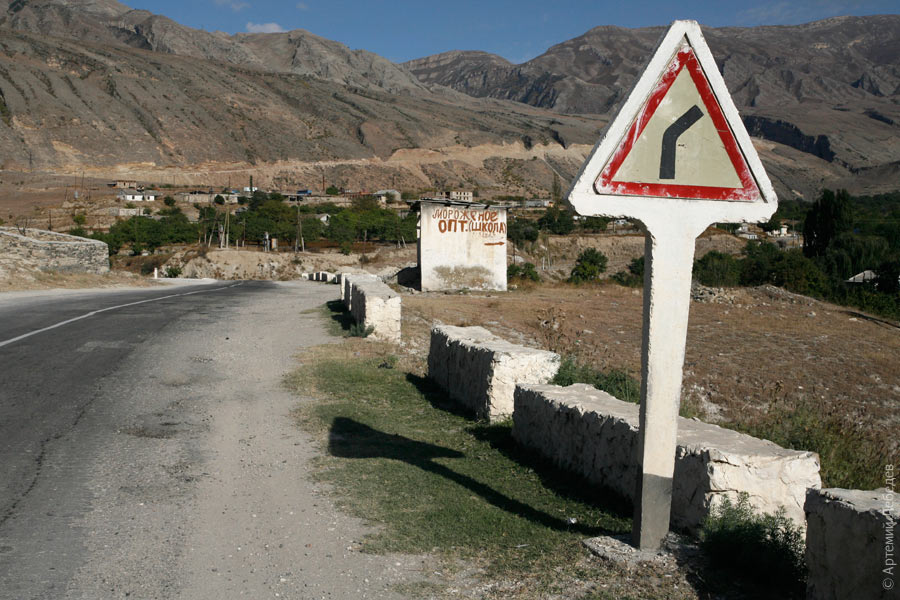 |